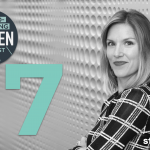There’s a lot of talk these days about training the skill of focused attention. Focus, we’re told, is the key to productivity and resisting the seductive draw of our devices. It’s the essential skill for thriving in business and in life. Hence the popularity of engagement strategies, meditation apps, and bio-hacking techniques designed to boost concentration.
Don’t get me wrong. Focus is important, and it’s worth developing this capacity. But it’s a lot like a hammer. It’s just one tool in the mental toolkit. It’s powerful when we need precision and attention to detail. And yet it’s often not the right tool for other forms of thinking: creative brainstorming, big-picture analysis, or pattern recognition.
The two states of mind
Let me explain. When we look closely at the contemplative traditions that have been mined for contemporary mindfulness and meditation practices, we see that there are two primary types of mind states. There’s what we might call “micro-mind.” This is a state of focused attention where we narrow the scope of the mind, zooming in on a single object of concentration (a report, a presentation, or a spreadsheet).
But there’s another essential, if less obvious, mind state that allows us to think big and see our work with a greater sense of perspective. Call this “macro-mind.” This is the state of zooming the mind’s focus out. Instead of fixating on the details, this state is all about seeing our work and life from a perspective of panoramic awareness. It’s less like peering through a microscope and more like gazing at the view from a mountain top.
In the mind state of macro-mind, there’s no need to focus. In fact, concentration pulls us out of this state. To enter more deeply into the big mind, we need to train the skill of dropping focus altogether, relaxing the mind, letting it roam free, and taking periods of time where the goal isn’t to do anything. The goal is simply to be and see what arises.
It’s obvious why we spend so little time talking about the macro-mind in modern business. Its preconditions – openness, space, and unscheduled time – run counter to just about every impulse of productivity-hacking behavior. And yet this avoidance of macro-mind thinking comes at a cost. Organizations fixated solely on focus might get all the details right, but they often lack a clear sense of vision and an ability to react proactively to broader industry trends. In short, focus comes at the cost of big-picture thinking and innovation.
Balancing the mental macro and micro
The solution, of course, is to strive toward a balance between micro- and macro-mind. And because we live in a business culture whose center of gravity slants toward the micro, companies interested in promoting creativity and big-picture thinking need to make special efforts to give employees opportunities to develop this essential skill.
There are myriad ways to incentivize macro-mind thinking in the modern workplace. Here are just a few that can have game-changing effects:
Make space for big-picture thinking: Some companies give their employees a half day once a week or once a month to pursue “moon shot” projects or just let their creative juices flow with no set agenda. Even an hour or two a week at work of unstructured time can have a huge impact on boosting macro-mind thinking.
Go beyond mindfulness: Mindfulness has become all the rage at companies focused on promoting focus and wellbeing. And yet most corporate mindfulness solutions are based on forms of meditation practice called “focused attention.” These practices are great at building concentration. In recent research, however, they have been shown to cultivate “convergent thinking.” The good news is that there is another family of meditation practice – often called “open awareness” or “open monitoring” – that develops the skill of expanding the mind to see the bigger picture. In the same research, these practices were shown to promote “divergent thinking” – one of the key ingredients for creative insights.
Do nothing: This is the advanced practice, the double-black diamond approach to developing the macro-mind. The momentum to be productive is so strong that most of us rarely, if ever, have the opportunity to do nothing. Even when we are “resting,” we usually have a device, a TV on in the background, or some sort of productive agenda. Taking just a few minutes to do nothing while you’re at home, in an Uber, or waiting for the plane to take off gives you the mental space to see beyond the details and into the larger picture.
Focus is a powerful mental ability. And yet it’s not the only mind-state that we as busy professionals need to cultivate to work at peak levels of performance. The big breakthroughs come, not through concentration, but by giving your mind a chance to rest and see the bigger picture.





